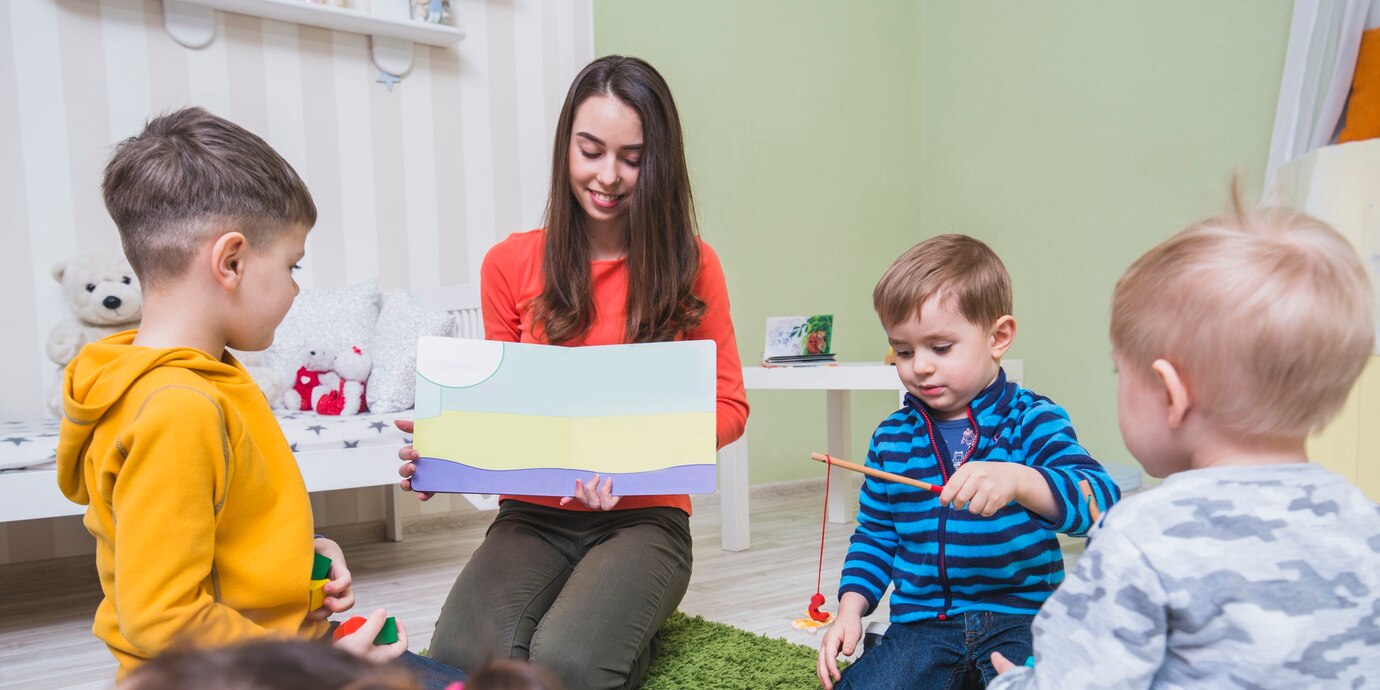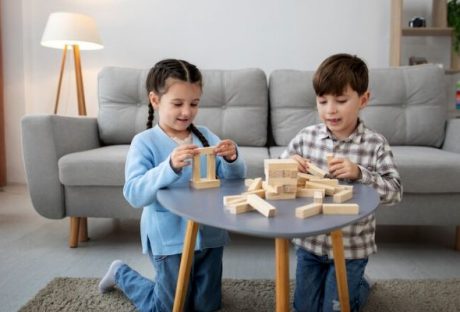For a child’s growth and development, the first few years of their life are very important. And when it comes to education, enrolling your child in kindergarten can lay a strong foundation for their future academic success. Along with academic success, kindergarten also ensures that children can interact with other children and elders!
Social behavioural skills along with new ogrowth opportunities observed. Parents also experience a new kind of learning with regard to guiding their children. Individuals will learn about how to interact fluently with children and understand what they want. Children also learn about how to express themselves effectively.
Kindergarten is more than just a place for children to play and have fun – it is a critical stage in their educational journey. It is about learning emotional and social skills along with problem-solving through learning and practice In this guide, you will explore why enrolling your child in kindergarten can be one of your best decisions.
1. Development Of Early Academic Skills
Kindergarten introduces basic concepts such as letters, numbers, and shapes in an engaging and age-appropriate manner. Through interactive activities, games, and storytelling, children begin to grasp fundamental academic concepts, setting the stage for a smoother transition into formal education.
The exposure to early academics in kindergarten sparks curiosity and lays the groundwork for a lifelong love of learning. It is the environment of learning in Kindergarten where a child transitions from homeschooling to a further formal academic environment. They acquire social skills and motor skills in kindergarten!
The children gets prepared for elementary school as kindergarten gives the right manner and right environment. During this time, kindergarten helps children develop significant skills in academics along with gelling well in group activities.
2. Interaction With Peers And Building Friendships
Socialization is a crucial aspect of early childhood development, and kindergarten offers a structured environment for children to engage with others their age.
Through group activities, playtime, and collaborative learning, children develop essential social skills such as sharing, cooperation, and effective communication.
Teamwork is something that children learn in kindergarten as they learn how to behave with other children along with their parents, teachers, and elders. In the academic environment, there are several group activities in which children are taught a lot. The learning includes imparting values of growth, teamwork, and leadership!
The children develop leadership qualities from the group activities along with significant teamwork. Children are by nature curious so in kindergarten, they are learning about care, educational growth, and play-based learning. It is the responsibility of teachers to help the children to satisfy their curiosity by helping them develop skills!
3. Preparation For Formal Schooling
The transition from home to the more structured setting of elementary school is made easier by kindergarten. As kids get older, they learn important habits like following a schedule and participating in classroom activities.
They also develop essential school readiness skills like listening, following instructions and adapting to a learning environment. The structured nature of kindergarten helps children acclimate to the expectations of formal education, ensuring that they enter primary school with confidence and a sense of familiarity.
Children get care in kindergarten but there is also an educational environment where they get to learn about how to conduct themselves out and about! They learn about showing mutual respect along with discipline and organization.
It is an important educational program or system in kindergarten where children get exposed to the external world. Children get to learn about how to behave and treat others especially when they are experiencing play-based activities. Children attend toward investigators and thinkers so kindergarten supports them!
4. Exposure To Verbal And Non-Verbal Communication
Enrolling your child in kindergarten exposes them to both verbal and non-verbal communication, helping them develop crucial language skills. Teachers encourage children to express themselves using words and gestures, enhancing their communication ability.
Through activities like storytelling and group discussions, children learn to listen, speak, and understand others, laying the groundwork for strong communication skills. There are activities such as singing, drawing, and games in kindergarten so children adapt to new environments where sharing, adapting, and social skills.
In kindergarten classes, children learn about problem-solving, emotional, and social skills across many activities. Some challenges develop among children, especially with emotional and social skills. They develop self-esteem across kindergarten as their curiosity gets satisfied.
5. Stimulating Cognitive Skills Through Activities
From puzzles and games to creative projects, these activities enhance problem-solving abilities, critical thinking, and memory. Through this process, children learn to explore, observe, and make connections between different concepts. The hands-on nature of kindergarten Sunbury activities provides a multisensory learning experience, promoting cognitive development.
There are significant characteristics that children develop from kindergarten especially coming out from the familiarity of home. There are real-life situations where significant challenges such as competitiveness or concerns of adaptability when children.
It is, however, the responsibility of the teachers who support the children to adapt to the environment. The children learn a lot of information along with experiencing challenges thus, exploring and learning from her experiences. For example, the shapes and colors of different things around the children help them get more fascinated!
6. Boost In Confidence And Independence
Whether sharing ideas during show-and-tell or completing a small task independently, each accomplishment contributes to a child’s growing sense of confidence. The structured yet nurturing setting of kindergarten allows children to make choices, solve problems, and build a foundation for independence.
These early experiences instill a positive self-image and a belief in their abilities, preparing them for future educational milestones with a sense of assurance. Independence and confidence are an integral part of children’s lives when activities are being organized!
Real-life experiences are used in kindergarten to help the children boost creativity along with the value of teamwork and engaging the senses! The children develop a profound understanding.
Enroll Your Child In Kindergarten Now
In conclusion, deciding to enroll your child in kindergarten is a significant milestone that sets the stage for their educational journey. So, embrace this opportunity to provide them with a nurturing and stimulating environment that fosters growth and learning. Enroll your child in kindergarten now to give them a head start on the path to knowledge and social development.
Read Also:
- Why are More People Heading to Online Colleges?
- Here Are 10 Tips On How To Get Motivated For Work, School, or Life
- 7 Reasons Why Online Education is Very Popular

























